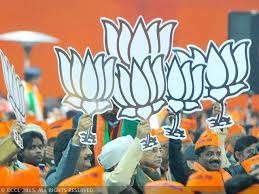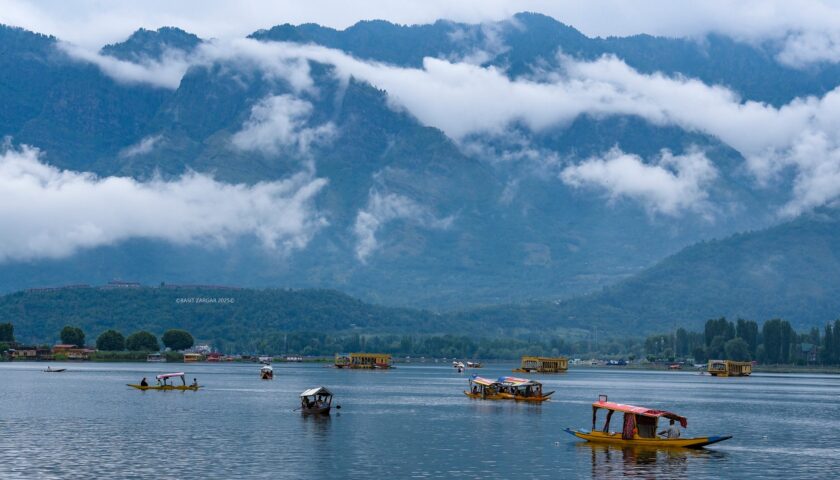Sheikh Shabir
 Sudden death of Chief Minister Mufti Mohammad Sayeed is an irreparable loss to his party PDP. Since his demise, PDP has been in a fix over continuing the government with the erstwhile partner BJP. In fact Sayeed’s departure is no little loss to Bharatiya Janata Party (BJP), which had entered into an alliance with PDP and formed the government in March 2015.
Sudden death of Chief Minister Mufti Mohammad Sayeed is an irreparable loss to his party PDP. Since his demise, PDP has been in a fix over continuing the government with the erstwhile partner BJP. In fact Sayeed’s departure is no little loss to Bharatiya Janata Party (BJP), which had entered into an alliance with PDP and formed the government in March 2015.By winning 25 seats in 2014 assembly polls, BJP had not only silenced its critics but also set the cat among the pigeons of the other regional parties, especially, the ones with a strong voter base in the Jammu region. Moreover, it has to be admitted that the 25-seat-win had opened the floodgates for BJP to form government in the state for the first time. And hence reap rich dividends in terms of strengthening its voter base in its stronghold – the Hindu dominated Jammu region – as well as widen its circle of political influence over the larger electorate in the state.
To achieve these goals, BJP took the decision to be part of the coalition government. PDP had won majority of the seats, 28 in the elections. For this power sharing equation, BJP agreed to give a full six-year term to PDP patron as CM and also conceded more ministerial berths to the CM’s party.
While in power for over ten months and before the CM’s death, BJP was playing a dominant role. In the beginning, PDP played the upper hand as was clear from late CM’s intent. For example, the CM credited militants, separatists and Pakistan for the smooth conduct of 2014 assembly polls in the state. And then went on to see the release of separatist leader Masrat Aalam Bhat. Although Bhat was released as per the High Court order, the CM came in the line of fire by both BJP cadres and Indian media.
But the assertion of Sayeed was short-lived and BJP flexed its muscles within no time. The party brought to central stage issue after issue. Issues like Article 35 A, settlement of West Pakistan refugees, rehabilitation of Kashmiri Pandits, Beef Ban and hoisting of state flag – all were raked up by the party. These issues divided the state along communal and religious lines, and for most of the time it appeared that the alliance may have a tragic end. But no such thing happened for which the credit goes to Sayeed and his political acumen.
A point to note is that had these thorny issues broken the alliance, BJP’s revival would have become impossible even in the Jammu region.
From BJP’s point of view, Sayeed was a unifying force. He was no ordinary politician. He was a statesman who knew the highways and byways of politics. He did concede BJP the space to do its brand of politics but always ensured that the party softened its stand. Perhaps this was the reason for him to stress on Indo-Pak dialogue, ‘goli sai nahi, baat banegi boli sai’ slogan and the ‘battle of ideas’ mantra. This political maturity of Sayeed made the alliance run despite all odds.
But now with Sayeed gone, both PDP and BJP are in trouble. PDP less so. PDP has many options to form the government – Congress, NC and BJP. But for BJP, there is no option. The party will be awkwardly placed if PDP ditches it and forms alliance with any other party. BJP has already lost elections in NewDelhi and Bihar though it leads the government at the center. And if PDP ditches it, it will lose another state (J&K). The loss will mean that the party has failed in governance and lost support of the people.
To regain the support will be tough for BJP if out of power given its bad performance. So keeping in view its prospects and its performance, BJP would like to support Mehbooba Mufti as the new CM. The party may offer sacrifices in terms of portfolios so that it again shares power with PDP. But if that does not happen, BJP will be hard put to face its voters and regain their confidence. Indeed, the party is caught between the devil and the deep sea.
Author is a teacher and can be mailed at sheikhshabir518@gmail.com




